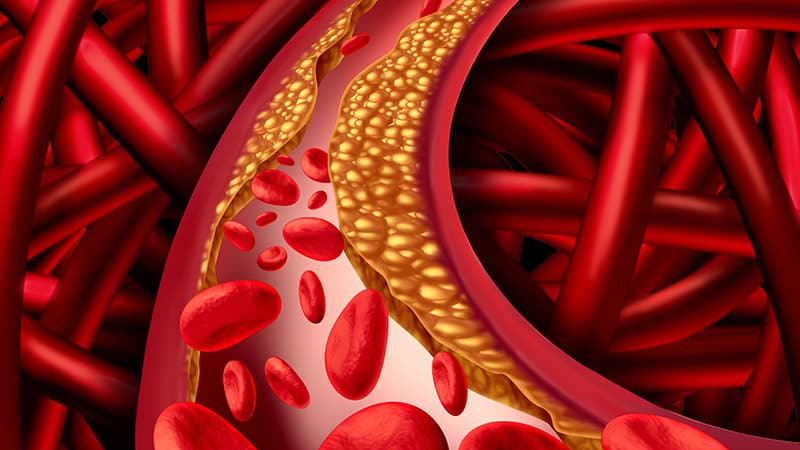Did you know that 1 in 8 Americans over the age of 65 have some form of dementia and that almost ½ of all individuals over the age of 85 have it as well. It is currently the sixth leading cause of death in America and is expected to cost the United States healthcare system roughly $200 billion dollars in 2012[1]. Did you know that correcting one of the most common nutrient deficiencies in America could significantly reduce your risk of developing cognitive declines as you age?
A Growing Epidemic:
According to a report in the Harvard Health Newsletter, vitamin B12 deficiency is the most common nutrient deficiency in the developing world and the United States[2]. Other studies estimate that nearly 50% of all older individuals are deficient in B12[3].
Signs and symptoms of a B12 deficiency include the following:
- Low Energy and Weakness
- Confusion or “fuzziness”
- Persistent sleep problems
- Digestive problems
- Hearing and vision loss
- Memory problems
- Irritability and mood swings
- Dizziness or lightheadedness
- Weak Immune function
- Numbness and tingling in the hands and feet
Vitamin B12 is essential to the very foundation of life itself — it’s one of the building blocks your body uses to produce DNA. It also keeps your immune system functioning optimally, regulates mood and sleep cycles[4], and is crucial to energy production, which is why it’s known as the “energy vitamin.”[5]
Vitamin B12 and Age Related Dementia:
The cognitive declines associated with aging have been clearly linked to a process in the body that involves a decease in brain mass. That’s right, your brain actually shrinks, as you get older! This reduction in brain mass is directly correlated with dementia risk and the associated declines in memory and cognitive function seen in older individuals[6].
A landmark study conducted in 2010 showed that supplementation with B12 in combination with B6 and folic acid slowed the accelerated rate of brain shrinkage and declining cognitive scores in older individuals with mild cognitive impairment.[7] The improvements are thought to be directly related to a reduction in homocysteine levels. While B6 and folic acid are readily available in the diet and easily absorbed, severe B12 deficiency is thought to affect nearly 1 in 2 older adults[8] [9] making proper supplementation critical.
A more recent 2011 study published in the journal Neurology confirmed the importance of B12 in brain health among older individuals[10]. It again showed that older individuals with higher levels of B12 in their blood had less shrinkage of the brain than counterparts with lower levels. Those with higher B12 blood levels and increased brain size also scored higher on memory and cognitive tests.
B12 protects your brain and nervous system by keeping nerves healthy and communicating in an optimal manner[11] [12]. In addition, one of its most powerful protective properties for the brain is its ability to reduce blood levels of a dangerous metabolite called homocysteine. Homocysteine is a protein naturally formed in the body as a result of metabolism that is commonly correlated with many adverse health affects. Reductions in circulating homocysteine levels as a result of increased blood levels of B12 have been found to reduce the risk of developing serious age related cognitive declines[13].
This water soluble b-vitamin is proving to be one of the most important nutrients in the landscape of protecting the brain and reducing the risk of age related cognitive declines.
Being deficient in B12 puts your brain at serious risk by contributing to age related brain mass declines and elevated levels of blood homocystine. Supplementing with this one nutrient can help you to preserve your brain function and improve your overall state of well-being.
The Need For B12 Supplements:
Many factors are contributing to the massive rise in B12 deficiency. The most important factor is related to body’s decreasing ability to absorb B12 as we age. It has been clearly established that most people are deficient in B12 not because of a lack of consumption, but because they lack the ability to properly absorb it into the bloodstream.
Unlike almost all other vitamins, B12 must be separated from food by stomach acid in order to be absorbed. In addition, the body has to release a special binding protein called intrinsic factor to facilitate the passage of B12 into the blood stream. As we age the cells in our stomach that make the stomach acid needed to cleave B12 from food and the intrinsic factor needed to absorb it significantly reduce in activity and potency. This leaves us with a severely compromised mechanism to extract and absorb B12 from our food as we age.
Are Pharmaceuticals Robbing Your Body of B12:
Another major factor that contributes to B12 deficiency is prescription medication. Acid blocking medications work by blocking the release of acid from the specialized cells that line the stomach and results in a significant decrease in our body’s ability to cleave B12 from the food we eat. This dangerous side effect of acid blocking medications has been clearly established and it is recommended that patients on acid blocking medication have their B12 levels checked at least once per year.
Type II diabetes is reaching epidemic proportions in our culture and the most commonly prescribed medication to treat this condition has also been found to significantly lower B12 levels.[14] Metformin depletes the body of B12 by preventing the absorption of B12 in an area of the small intestines called the ilium.
The Connection between B12 and Thyroid:
People with hypothyroidism can be at a greater risk for B12 deficiency, particularly those with Hashimoto’s. The authors of a 2008 study concluded that 40% of 116 hypothyroid patients screened in their clinical trial had a B12 deficiency regardless of the presence of antibodies.[1] This means all hypothyroid patients are at potential risk. The authors conclude that “There is a high (approx 40%) prevalence of B12 deficiency in hypothyroid patients” and that “Screening for vitamin B12 levels should be undertaken in all hypothyroid patients, irrespective of their thyroid antibody status.”
There are several reasons as to why thyroid patients might be at particular risk. For those with autoimmune disease there is often inflammation in the gut which creates problems with B12 absorption. Many people with autoimmune thyroid issues have a gluten sensitivity which can create inflammation in the gut that impedes B12 absorption. In addition, for those with autoimmune hypothyroidism there is about a 25% risk of developing other autoimmune conditions. Pernicious anemia is an autoimmune condition that prevents B12 from being absorbed in the small intestine. Those without the autoimmune component are also at risk due to the generalized inflammation that can occur from being hypothyroid. Hypothyroidism is also known to impact gastrointestinal function which can impede B12 absorption.
Take the Right B12 or Don’t Bother to Take it at All:
There are 2 main factors to consider when choosing a B12 supplement:
- Sublingual Delivery– All oral B12 supplements should be delivered to the body by dissolving them under the tongue. The vast network of blood vessels under the tongue allows B12 to be absorbed directly into the blood stream and thus bypassing the issues related to stomach acid and intrinsic factor.
- Activated Forms- Most B12 supplements on the shelf and on the Internet are made with an inexpensive form of B12 called cyanocobalamin. The problem with this form of B12 is that your body cannot even utilize it! In order to have a beneficial effect on the health of your cells, it must first be converted into its active counterpart called methylcobalamin.
For these reasons, I ALWAYS suggest that anyone interested in supplementing with B12 use a supplement that contains 100% methylcobalamin delivered in a sublingual form. Human research has shown that supplementing with the active form of B12 is much more effective than using its inactive cyanocobalamin counterpart. The only reason why more companies don’t use active B12 in their supplements is to save money and increase the profit margins on products.
Doctor Recommended B12 Supplement:
I personally recommended a high quality, high potency activated B12 supplement from one of my most trusted doctor brands. It delivers 5,000mcg (5mg) of methylcobalamin per every great tasting sub-lingual tablet. To learn more about my recommended B12 supplement and receive limited special offer, click here.
Safety:
B12 has no know drug interactions and has never shown and adverse or toxic effects in humans when given in large doses.
[1] Alzheimer’s Association
[2] Harvard Health Letter- August 2005 Edition
[3] Emmanuel Andrès, Thomas Vogel. Cobalamin Deficiency in Elderly Patients: A Personal View. Curr Gerontol Geriatr Res. 2008; 2008: 848267
[4] Mayer G, Kröger M, Meier-Ewert K. Effects of vitamin B12 on performance and circadian rhythm in normal subjects. Neuropsychopharmacology. 1996 Nov;15(5):456-64.
[5] Herbert V. Vitamin B12 in Present Knowledge in Nutrition. 17th ed. International Life Sciences Institute Press, 1996.
[6] American Health Assistance Foundation. 2000-2012 www.AHAF.com/alzheimers
[7] A. David Smith, Stephen M. Smith et al. Homocysteine-Lowering by B Vitamins Slows the Rate of Accelerated Brain Atrophy in Mild Cognitive Impairment: A Randomized Controlled Trial. PLOS Sept. 2010
[8]Kimberly A Skarupski, Christine Tangney, et al. Longitudinal association of vitamin B-6, folate, and vitamin B-12 with depressive symptoms among older adults over time. Am J Clin Nutr. 2000;71:514-22
[9] Baik HW, Russell RM. Vitamin B12 deficiency in the elderly. Annu Rev Nutr. 1999;19:357-77.
[10] Bowman, G. Neurology, published online Dec. 28, 201
[11] Taraneh Dormohammadi Toosi, Farhad Shahi, et al. Neuropathy caused by B12 deficiency in a patient with ileal tuberculosis: A case report. Eur J Pharm. 1993;241:1-6
[12] Neurosci Lett. 2000;288:191-4
[13] B. Hooshmand, MD, MSc, A. Solomon et al. Homocysteine and holotranscobalamin and the risk of Alzheimer disease. Neurology October 19, 2010vol. 75 no. 16 1408-1414
[14] Jolien de Jager, Adriaan Kooy Long term treatment with metformin in patients with type 2 diabetes and risk of vitamin B-12 deficiency: randomised placebo controlled trial. BMJ 2010;340:c2181
[1] Jabbar A1, Yawar A, et al. Vitamin B12 deficiency common in primary hypothyroidism. J Pak Med Assoc. 2008 May;58(5):258-61.









5 Comments
B12 injections and Vitamin C helped me control anxiety. I discovered when I was under a lot of stress it rapidly depletes your B-12 which is important to your central nervous system. It was a horrible feeling. I took a B12 supplement and EmergenC. It worked like a light switch it worked that fast. I now get the B12 injection once a month.
All those titles that include the word “natural’, yet not a single mention of medicine from nature in this article. Let your food be your medicine: EGGS
It’s a good article and I’m relieved you emphasized Methylcobalamin supplementation instead of Cyanocobalamin (the cheap and inactive form that releases one cyanide molecule for each molecule the body reduces to the active form) I put 5mg under my tongue every morning and it’s almost like a cup of coffee for my energy.
One thing, the article mentions a 2010 study that demonstrated “supplementation with B12 in combination with B6 and folic acid slowed the accelerated rate of brain shrinkage and declining cognitive scores in older individuals with mild cognitive impairment.[7] The improvements are thought to be directly related to a reduction in homocysteine levels.”
The problem is that Folic acid is the inactive form of that vitamin so the better solution is to supplement 5-methyltetrahydrofolate, the active form.
http://chriskresser.com/folate-vs-folic-acid
This is also associated with the cutting edge field of nutrigenomics (using nutrition to compensate for genetic vulnerabilities) Over 40% of the population has genetic polymorphisms (once called “defects”) in the MTHFR gene that impairs the conversion Folic Acid to its active form. This leads to the build-up of homocysteine cited by the article as a health risk factor. Likewise, MTR and MTRR polymorphisms affect the action of B-12 and so Methylcobalamin and Hydroxycobalamin become the nutritional compensation.
Sorry for the excess biochem and genetic words! These to vitamins can be the key to fueling the methylation cycle which happens a billion times a second in the body and is an important part of the body’s detoxification (and other) functions. This can be a big factor in helping people with various chronic diseases reverse the unexplained non-response to treatment and gradual degrading of health.
.. this is a good article .. esp the sections on B12 absorption, and the medical prescribing problem of not checking for unwelcome side-effects.
The role of B12 in overall health continues to amaze me. Even more so, I continue to see B12 deficiency in many of my patients on screening lab tests. While the reference range does not identify a medical deficiency until B12 levels drop below around 250 pg/ml, anyone with levels below 400 pg/ml will likely benefit greatly from supplementation. Malabsorption due to food sensitivities (gluten being the most predominant), GI infections like SIBO, parasites or yeast overgrowth, and hypothyroidism are the most common factors I see that contribute to B12 deficiency.
Make sure to have your doctor check your levels regularly. If you are low you can get an excellent source of activated B12 here https://www.greenhealingnow.com/product/methyl-b12/